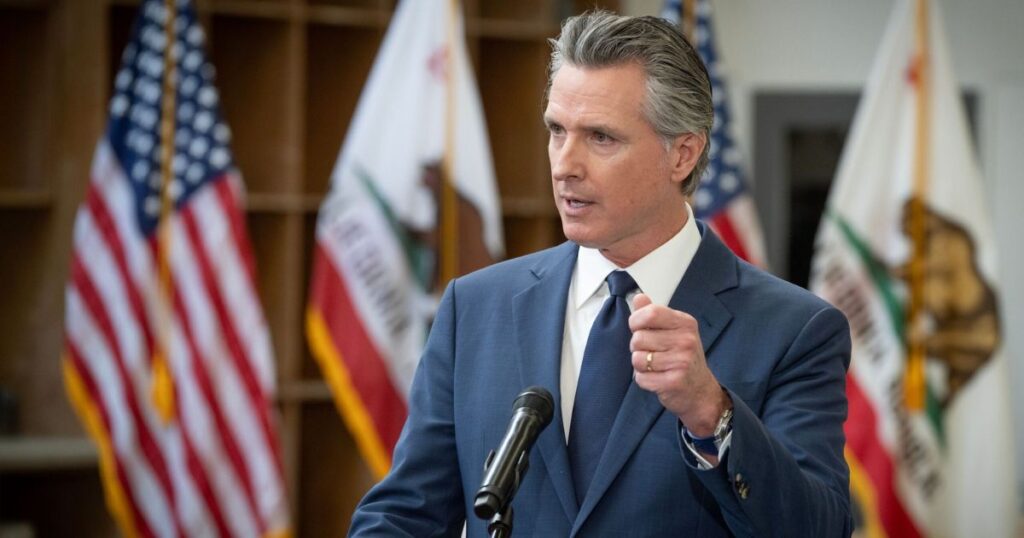A unanimous legislature, zero opposition, but Newsom says no — refusing access to the sickest Californians.
Governor Gavin Newsom had a chance to honor the roots of California’s cannabis movement. Instead, he chose to betray them.
On the final day possible, Newsom vetoed Assembly Bill 1332, a unanimously approved, patient-centered bill that would have allowed licensed cannabis microbusinesses to ship medicinal cannabis directly to seriously ill patients across California.
This wasn’t some controversial legalization gambit or a tax loophole for Big Weed — it was a modest, compassionate reform for the state’s sickest and most underserved medical cannabis patients.
Yet Newsom called it “too expensive.”
Let’s unpack that.
100% Legislative Approval. 0% Compassion from the Governor.
When was the last time every single California lawmaker agreed on anything?
AB 1332 passed with unanimous bipartisan support
- 39 Senators voted YES
- 78 Assemblymembers voted YES
- Zero NO votes. Zero abstentions.
No opposition from trade groups.
No lobbyist blowback.
Just a chorus of YES votes from across the political spectrum.
Organizations like the Society of Cannabis Clinicians and CalNORML submitted formal letters of support. The intent was simple: help seriously ill medical patients — especially those in rural areas or with mobility issues — get safe, legal access to the medicine they rely on.
But despite universal approval from the legislature and zero opposition from industry, Governor Newsom killed the bill with the stroke of a pen.
This wasn’t democracy in action — this was one man overruling the will of the people and the representatives elected to serve them.
The Governor’s Excuse: “Too Expensive”
In his veto message, Newsom claimed AB 1332 would be “too costly” to implement and could place California at odds with federal law.
The Department of Cannabis Control (DCC) estimated the program would cost $472,000 per year to manage.
Let’s put that in perspective.
California’s regulated cannabis industry generated $539 million in excise tax revenue in 2024.
That means the annual cost of implementing AB 1332 would have been 0.087% of the revenue cannabis already contributes to the state’s coffers.
In other words, Newsom believes spending less than one-tenth of one percent of cannabis tax revenue to serve 4,000 seriously ill medical patients is too expensive.
That’s $118 per patient — about the cost of one dinner in San Francisco or half a tank of gas in a state car.
The Hypocrisy: Shipping Liquor Is Fine, But Cannabis Medicine Isn’t
To make matters worse, Newsom recently signed AB 1246, a bill allowing hard alcohol to be shipped directly to consumers’ homes.
So under his logic, it’s perfectly fine to ship vodka, but not RSO or tinctures for a cancer patient.
You can have whiskey delivered to your doorstep — but not the plant-based medicine that helps chemotherapy survivors eat or sleep.
That’s not just inconsistent — it’s cruel.
California has prided itself on being a leader in compassionate access and progressive cannabis policy. But with this decision, Newsom showed his priorities: protect optics, not patients.
The DCC’s Convenient Flip-Flop
Earlier this year, the DCC described the cost of implementing AB 1332 as “minor and absorbable.”
Later, when the Governor needed a reason to veto it, the language shifted to “expensive and burdensome.”
Sound familiar? It’s a bureaucratic dodge we’ve seen before — one that trades compassion for convenience.
The DCC claimed it would require a “massive rebuild” of the state’s METRC track-and-trace system. But that’s disingenuous.
The bill’s scope was narrow: it only applied to licensed microbusinesses that already handle retail, distribution, and outdoor cultivation. The infrastructure and compliance mechanisms are already in place.
It wouldn’t have required reinventing the system — just expanding access.
Instead, the agency inflated the projected cost and complexity, and the Governor parroted that narrative to justify the veto.
This Is About Priorities, Not Policy
Newsom’s veto wasn’t about federal law. It wasn’t about budgetary responsibility. It was about political optics and a fundamental lack of empathy for the medical cannabis community.
Let’s not forget — California’s entire cannabis industry exists because of medical patients.
Prop 215, passed nearly 30 years ago, was a medical initiative. It wasn’t about tax revenue, or branding, or dispensary chains. It was about compassion, dignity, and safe access to a natural medicine that the federal government criminalized.
Those patients — the cancer fighters, veterans with PTSD, epileptic children, chronic pain survivors — they built the foundation of California’s cannabis economy.
Now, in 2025, that same community has been sidelined, overtaxed, and forgotten.
This veto is a message from the Governor that the people who started this movement are no longer a priority.
Corporate Cannabis Wins. Patients Lose.
Let’s be real: this veto doesn’t hurt the big players.
Corporate cannabis companies with delivery fleets, distribution networks, and deep lobbying pockets will keep thriving.
It’s the small, community-driven microbusinesses — the ones who actually care about patients — that are left stranded.
AB 1332 would have empowered those microbusinesses to serve rural and homebound patients directly, cutting through bureaucratic nonsense to get medicine where it’s needed most.
Instead, those patients are now at the mercy of a system designed for mass-market recreational sales — a system that’s already pricing out legacy operators and choking compassion programs to death.
This isn’t “regulation.” This is state-sanctioned consolidation.
If you’re not a mega-brand with a lobbyist, you don’t get a seat at the table.
The Numbers Don’t Lie
Let’s take a hard look at the arithmetic of this decision:
| Category | Figure |
| Total Patients Served | ~4,000 seriously ill Californians |
| Annual Program Cost | $472,000 |
| Cost per Patient | $118 |
| 2024 Cannabis Excise Tax Revenue | $539,000,000 |
| % of Revenue Required | 0.087% |
So, the Governor believes that 0.087% of cannabis tax revenue is too steep a price to pay for compassion.
That’s not leadership — that’s cowardice wrapped in bureaucracy.
A Crossroads for California Cannabis
This moment is bigger than AB 1332.
It’s a crossroads for the future of California cannabis.
One path leads toward the original vision — a compassionate, inclusive, patient-first model rooted in wellness, access, and respect for the plant.
The other path leads straight into corporate monoculture — a landscape of industrial, low-grade recreational products mass-produced for tax revenue, with no heart, no soul, and no connection to the community that started it all.
By vetoing AB 1332, Governor Newsom made it clear which path he’s chosen.
But the rest of us don’t have to follow.
What Comes Next?
The fight for patient access doesn’t end here. It evolves.
Advocates will reintroduce similar legislation. The DCC can still issue regulatory guidance to reduce barriers. Lawmakers can demand transparency on how “minor and absorbable” costs became “too expensive” overnight.
But the real movement will come from the ground up — from patients, caregivers, advocates, and brands that refuse to let California’s compassion die on the vine.
We need to remind Sacramento that cannabis isn’t just an industry — it’s a legacy of care, community, and resistance.
Governor Newsom’s veto of AB 1332 isn’t just a policy decision — it’s a moral failure.
He chose to side with political caution and corporate convenience over compassion and common sense.
He chose to abandon the medical patients who built the foundation of California’s cannabis economy, all while pretending the cost of helping them was too great — a laughable 0.087% of the revenue they helped create.
California can still correct course. But that starts with accountability.
If our leaders won’t prioritize patients, then the cannabis community will have to do what it’s always done: stand up, speak out, and take care of our own.
Because compassion isn’t expensive — it’s priceless.
















